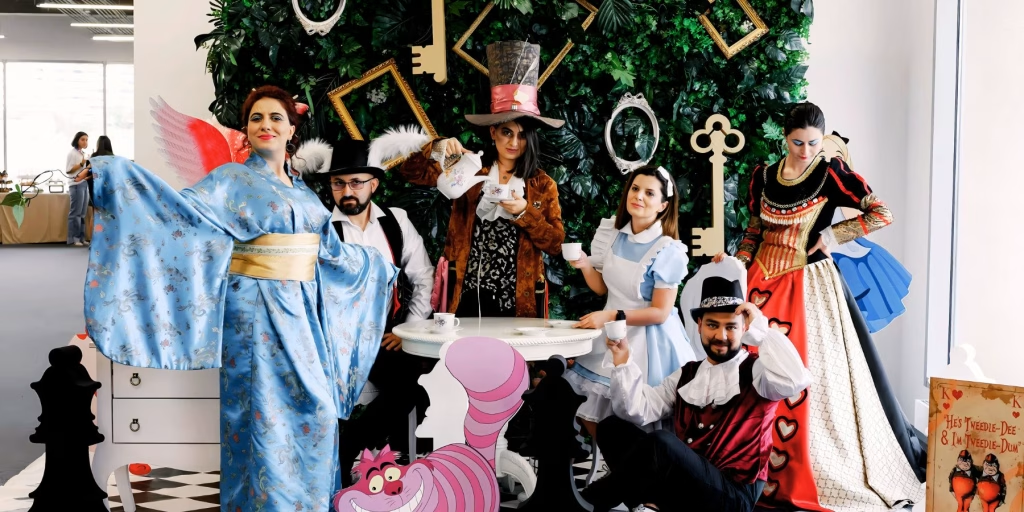
The time to forget disruption and get our hands on reparative entrepreneurship is now
More than a year since Russia began its war in Ukraine, entrepreneurial minds with rich experience in the Eastern European market have flooded Europe. Some have fled the war, others political oppression. All are looking for a way to settle down in a new market.
The old mantra ‘move fast, break things’ doesn’t seem to work when you don’t know what to expect. So where does this leave us? Well, to the point where we ditch disruption fantasies for good and concentrate on being reparative.
Here’s what I mean by reparative entrepreneurship: a way of running your enterprise where business acceleration doesn’t have to be a destructive power. Given the war and political uncertainty in Eastern Europe, we don’t need any more destruction.
There are two ways of being reparative in your business. The first is solidarity. The second is seeking more involvement in pan-European ecosystems.
According to the United Nations High Commissioner for Refugees, by April 2023 more than 8.1 million Ukrainians had left the war zone. Several hundred thousand Russians are also estimated to have fled, while an estimated 135,000 to 300,000 Belarusians have left their country since a disputed presidential election in 2020, many of them IT professionals, leading companies including Wargaming, iTechArt, and Playtika. Not all of these people are entrepreneurs. However, many do bring unique expertise in business development, finance, programming, marketing, and more. Many of these people have no resources to develop their own initiatives in the country of destination.
Solidarity as a driving force against destruction
This is where solidarity comes in. A start-up community works best when it’s open to new ideas and knowledge sharing. Lack of transparency and mutual help makes places like Silicon Valley fail to adequately respond to criticism from within and without. It also makes business err much easier. We’ve seen this happening to start-ups with a real product, such as Argo AI, and to poorly thought-out enterprises like Virgin Hyperloop One.
In the Eastern European start-up community specifically, I see how solidarity and collaboration enriches entrepreneurial practice. We’ve seen it during the pandemic in Belarus: while the regime was denying the virus existed, people supported each other in meaningful ways, providing care and collecting goods for those in need. Mutual admiration and help are the next best thing after healthy competition, because it allows us to learn exciting, unexpected things.
The solidarity mindset also brings different communities together: Belarusians in political exile and people fleeing the Russian war in Ukraine. This large group strives for democratic values such as openness, transparency, and growth. However, that’s not enough to counter what, for instance, Russia does in the region.

What does the pan-European ecosystem mean for Eastern European start-ups?
Open business ecosystems mean open access to talent, the key force of innovation. Suddenly finding ourselves in open Europe, we can move across countries and find the resources we need to grow our business optimally.
I believe entrepreneurial talent is able to solve many societal problems. Governments don’t stand in the way of entrepreneurial spirit as they do in Eastern Europe. Dealing with administrative barriers here in the EU is often a question of getting enough guidance from fellow entrepreneurs.
Eastern European entrepreneurs often bring unique expertise. For instance, many people who had to flee Ukraine and Belarus have strong backgrounds in software development and various types of engineering. This isn’t typical for Western Europe and becomes our unique value proposition. What we need entering the pan-European context is expert help to find the market fit.
A simple example would be Imaguru Startup HUB, a partner of She’s Next Empowered by Visa in Belarus. As long as you take care of the community and are solving actual problems, you’ll be loved by customers. Imaguru remained committed to and supported by its community even when it was shut down in Belarus after the political crisis of 2020. Finding a community of international experts in market placement, investments, business acceleration and growth hacking can help one realise that one idea that’ll change the world.
One hard pill to swallow
The Eastern European business community is growing start-ups in the face of huge adversity. The market is risky and unstable. It will stay this way for any foreseeable perspective. That’s the tiresome reality.
However, adversity isn’t always a bad thing for a business-minded person. It makes us resilient and inventive. Consider how Ukrainian start-ups courageously go on working in a war zone, while others support them from abroad. Our strength is in our adaptability, which can only be found in a collaboration drive and willingness to learn. Our data will often stay insufficient, so we can only learn to be intuitive by consulting others.
Whatever happens, you need to be there, thinking of how to bend the changes for people to profit from them. This I call reparative entrepreneurship, and the time for it is now.
Author
Anastasiia Khamiankova, Imaguru Startup HUB (Madrid, Vilnius, Warsaw)
New Free Courses — Made for Ambitious Women Entrepreneurs!
It’s time to grow smarter, adapt faster, and take your business global.
Explore two powerful courses available exclusively to She’s Next members:
The Reinvention Masterclass for Start-up Founders
Beyond Borders: Building for Global Success
Enroll today — it’s free!






Responses